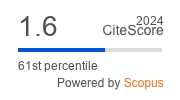Malaysian Journal of Mathematical Sciences, September 2016, Vol. 10, No. 3
Relationship between Cognitive Factors and Performance in an Introductory Statistics Course: A Malaysian Case Study
Foo Kien-Kheng, Nuralina Azlan, Siti Noor Dina Ahmad, Nagarajah Lee Hun Leong, and Ibrahim Mohamed
Corresponding Email: kkfoo@vmiuc.edu.my
Received date: -
Accepted date: -
Abstract:
This study proposes to determine the impact of three cognitive determinants: prior mathematical knowledge, statistical reasoning and misconceptions on statistical performance using a sample size of 374 Diploma of Science students from a campus of a large Malaysian public university. A quantitative research design was deemed suitable as the objectives of this study were aimed at measuring the strength and direction of the effect of the determinants on students' performance. A survey form was used to collect both primary and secondary data in testing the fit of the hypothesized regression model. The form comprised of items to collect respondent profile information, grades from relevant courses they took previously and self-reported grades of their mathematical achievement and language proficiency in the public examinations. Students' statistical reasoning and misconception were measured through an adapted version of the Statistical Reasoning Assessment (SRA) by Garfield (2003). A linear multivariate regression model was employed to evaluate the strength and direction of the relationships among the factors as hypothesized. Prior Mathematical Knowledge (PMK) (M = 78.54, SD = 11.72) and Statistical Performance (SP) (M = 64.63, SD = 24.78) were significantly higher as compared to Statistical Reasoning (SR) (M = 38.17, SD = 13.83) and Misconception (MC) (M = 34.44, SD = 11.56). Findings also indicated that Statistical Reasoning (SR) and Prior Mathematical Knowledge (PMK) significantly predicted Statistical Performance (SP) but Misconception (MC) did not. The best model generated was SP = 14.26 + 0.579PMK + 0.224SR. In addition, MC showed no moderating effect on the presumed relationships. The coefficient of determination for the regression model was R2 = 0.105 indicating that SR and PMK could only explain 10.5 % of the variance. This low statistic showed that statistical performance is a complex construct that depend not only on other cognitive factors but also non-cognitive variables as well. This paper concludes with a discussion on the pertinent issues related to the administration of the SRA instrument and recommendation for further research in the field of statistical reasoning and performance.
Keywords: Cognitive factors, test performance, regression model, introductory statistics, and Statistical Reasoning Assessment (SRA)









